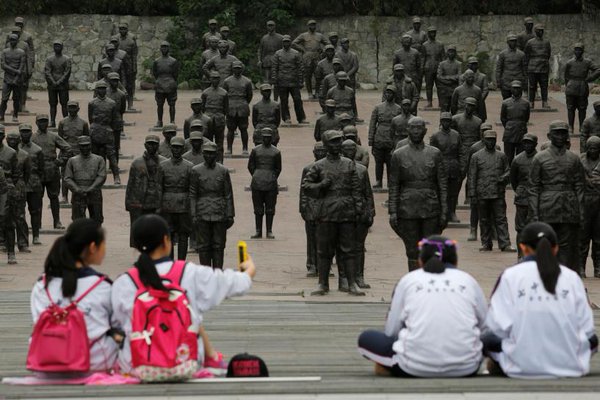
SHANGHAI: China must learn from the tumultuous, decade-long Cultural Revolution and never allow such an event to happen again, the ruling Communist Party's official People's Daily said on the movement's anniversary.
Monday marked the 50th anniversary of the start of the Cultural Revolution, but there were no official commemorations and no signs the party plans to loosen its tight grip over the historical narrative of one of its most damaging episodes.
"We must never forget to draw lessons from the 'Cultural Revolution'," the newspaper said in an opinion piece on Tuesday, in a rare public mention of the 1966-1976 period when Mao Zedong declared class war, plunging China into chaos and violence.
"We cannot and will not allow a repeat performance of an error like the 'Cultural Revolution'," it added.
During the Cultural Revolution, the economy stagnated, schools were closed, and some historians estimate that as many as 1.5 million people died and millions more were persecuted in the political upheaval.
Schools and official histories whitewash the movement and gloss over the violence, hewing closely to an official party verdict, five years after Mao's death ended the Cultural Revolution, that it had been a major and costly mistake.
The People's Daily said that 1981 assessment was "unshakably scientific and authoritative".
Though Mao remains a divisive figure, his image adorns China's banknotes and his embalmed body attracts hundreds, if not thousands, of visitors each day in Beijing.
He has also become a potent symbol for some leftists within the party who feel that three decades of market-based reform have gone too far, creating social inequalities such as a yawning gap between rich and poor and pervasive corruption.
The People's Daily said China has never been closer than it is today to, nor had more confidence in, reaching the goal of the "great rejuvenation of the Chinese people" and that China must "inseparably unite" around President Xi Jinping.
The Cultural Revolution must not be used by entities on the "right" or "left" to create interference, it said.
"(We) can neither take the rigid, closed, old road, nor the evil path of changing the flag," it said, a reference indicating that China will stick to socialism.